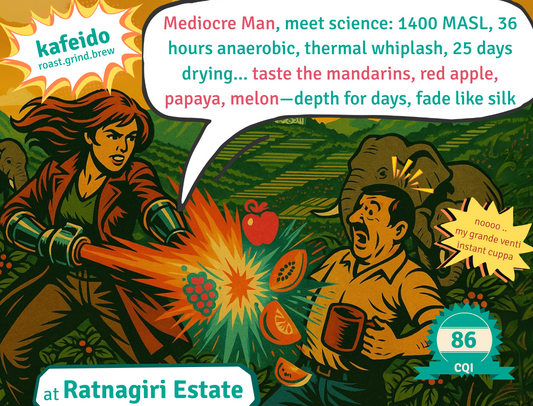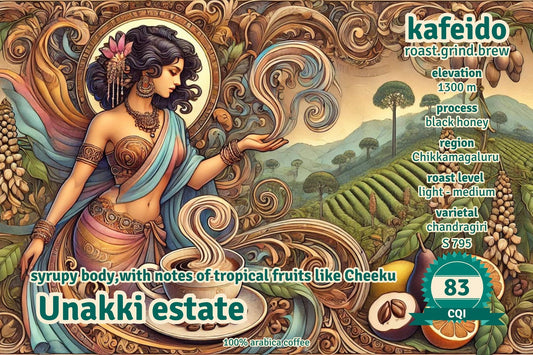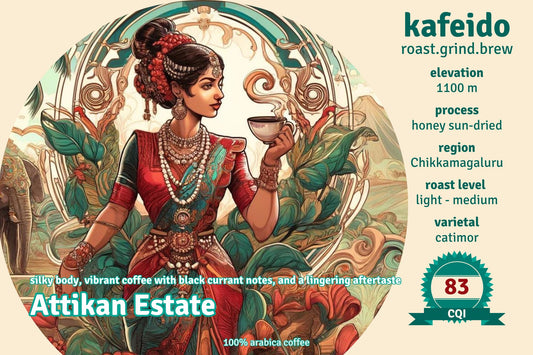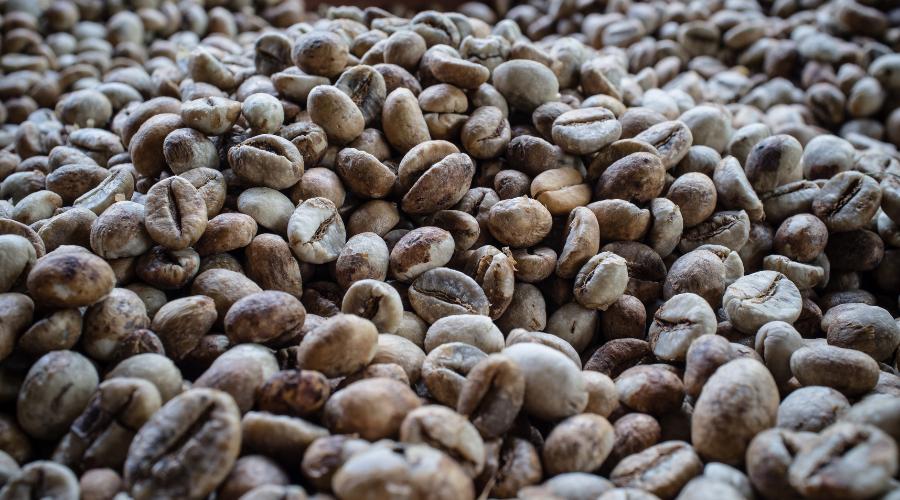
A Beginner's Guide to Understanding Specialty Coffee
If you're a coffee lover, you may have heard the term "specialty coffee" being thrown around in cafes or online. But what exactly is specialty coffee, and why is it so highly regarded by coffee enthusiasts?
In this beginner's guide, we'll explore the world of specialty coffee, from its origins and production to its unique flavor profiles and brewing methods.
By the end of this guide, you'll have a better understanding of what makes specialty coffee so special and how you can enjoy it to its fullest.
What is Specialty Coffee?
Specialty coffee refers to coffee that has been graded and scored at least 80 points out of 100 by a licensed Q-grader. The score is based on factors such as aroma, flavor, acidity, body, and aftertaste.
Specialty coffee is typically produced in small quantities, grown in specific regions, and harvested using sustainable and ethical practices.
The Specialty Coffee Association of America defines specialty coffee as "coffee that is free from defects, has unique and complex flavors, and is grown in ideal climates and prepared according to high-quality standards."
How is Specialty Coffee Different from Regular Coffee?
Regular coffee is typically mass-produced, using low-quality beans that are roasted until they are dark and bitter. Specialty coffee, on the other hand, uses high-quality beans that are carefully sourced and roasted to bring out their unique flavors and aromas.
Specialty coffee is also typically produced in smaller quantities and sold at a higher price than regular coffee. This is due to the cost of growing, harvesting, and processing the beans, as well as the expertise required to roast and prepare the coffee.
What are the Different Types of Specialty Coffee?

Specialty coffee can be categorized based on the region it’s grown in, the variety of coffee bean, and the method of processing. Some of the most popular types of specialty coffee include:
1. Single-origin coffee
Single-origin coffee refers to coffee that comes from a single region or farm. This type of coffee is prized for its unique flavours and aromas that are characteristic of the specific region.
2. Blend coffee
Blend coffee is made by combining beans from different regions or farms to create a unique flavor profile. Blends are often used to balance the flavours and aromas of different beans to create a consistent flavour profile.
3. Arabica coffee
Arabica coffee is a high-quality coffee that is grown at higher altitudes and in cooler climates. Arabica beans have a sweeter, more complex flavour profile than other varieties.
4. Robusta coffee
Robusta coffee is a lower quality coffee that is often used in blends or instant coffee. Robusta beans have a stronger, more bitter flavour profile and are typically grown at lower altitudes.
5. Natural processed coffee
Natural processed coffee is dried with the coffee cherry still attached, allowing the natural sugars in the fruit to infuse the beans. This method produces a sweeter, fruitier flavour profile.
6. Washed processed coffee
Washed processed coffee is washed with water to remove the coffee cherry before drying. This method produces a cleaner, brighter flavor profile.
What is Specialty Coffee Roasting?
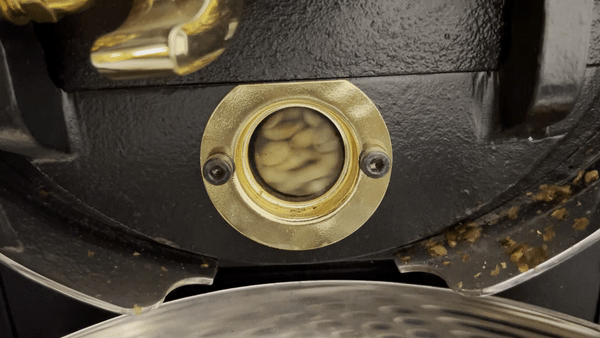
Roasting is an essential step in the coffee-making process that determines the flavour and aroma of the coffee. Specialty coffee is typically roasted in small batches to ensure consistency and to bring out the unique flavours of the beans.
The process consists of four main stages: drying, browning, development, and cooling.
During the drying stage, green coffee beans are heated to remove residual moisture that can cause the beans to pop during later stages of roasting.
The browning stage involves the beans turning brown and undergoing chemical reactions that result in the development of caramelization and Maillard reaction flavors.
In the development stage, the beans continue to roast until they reach the desired end color and temperature. The exact timing and temperature depend on factors such as roast level and flavor profile, and the beans begin to expand and release gases, producing the characteristic cracking sound associated with coffee roasting.
The final stage is cooling, which rapidly cools the beans to stop the roasting process and lock in the flavor and aroma.
Each stage plays a crucial role in determining the final flavour and aroma of the coffee, and roasters must carefully monitor and adjust the timing and temperature of each stage to achieve the desired roast level and flavour profile.
Check out the complete specialty coffee roasting process and the science behind it.
What are the Key Factors in Specialty Coffee Brewing?
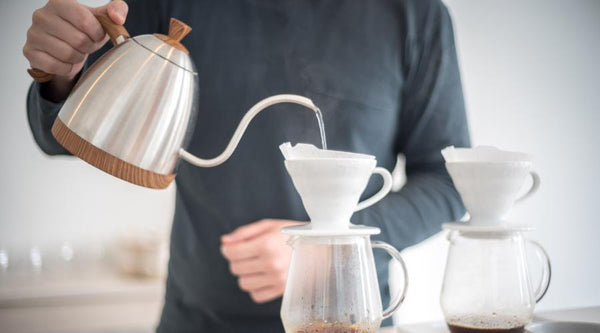
Brewing is the final step in the coffee-making process that determines the taste and strength of the coffee. Specialty coffee requires precise brewing to bring out the unique flavours and aromas of the beans.
There are several factors that contribute to the perfect cup of specialty coffee:
1. Water
The quality and temperature of the water used to brew coffee can affect the taste of the final product. Specialty coffee is typically brewed with filtered or spring water that is between 195-205°F.
2. Grind size
The size of the coffee grounds can affect the rate of extraction, which in turn affects the flavour and strength of the coffee. Specialty coffee is typically ground to a specific size based on the brewing method used.
3. Brew time
The amount of time the coffee is in contact with the water can affect the strength and flavour of the coffee. Specialty coffee is typically brewed for 2-4 minutes, depending on the brewing method used.
4. Ratio
The ratio of coffee to water used in brewing can affect the strength and flavour of the coffee. Specialty coffee is typically brewed with a ratio of 1:15 to 1:18, depending on the desired strength and flavour profile.
5. Brewing method
There are several brewing methods used to make specialty coffee, including pour-over, French press, and espresso. Each method has its unique strengths and weaknesses and can produce a different flavour profile.
Check out the importance of roast profiles in specialty coffee.
Why is Specialty Coffee More Expensive?
Specialty coffee is more expensive than regular coffee due to several factors. Firstly, specialty coffee is produced in smaller quantities and requires more labor-intensive harvesting and processing methods.
Additionally, specialty coffee is typically grown using sustainable and ethical practices, which can be more expensive than conventional farming methods.
Roasting and preparing specialty coffee also requires specialized equipment and expertise, which can add to the cost.
Specialty coffee is a unique and complex beverage that requires precision and expertise to produce. By understanding the key concepts and terms associated with specialty coffee, you can appreciate and enjoy the unique flavours and aromas of this high-quality beverage.
Whether you are a coffee enthusiast or a newcomer to the world of specialty coffee, there is always something new to discover and enjoy.

